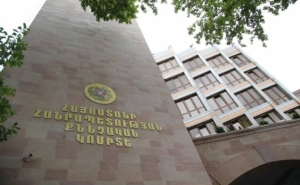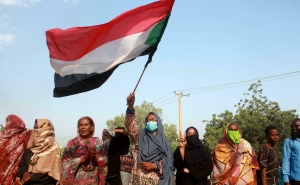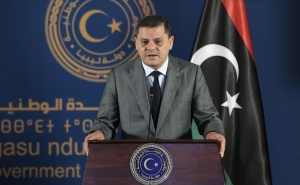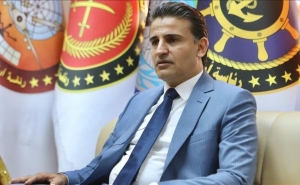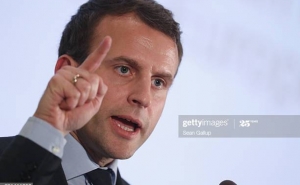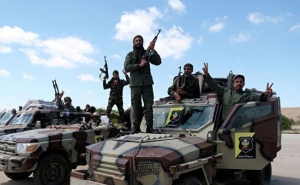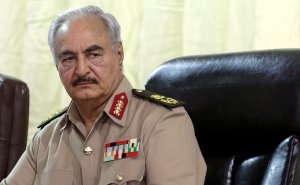Turkish-Arabic Tensions Affect Armenia
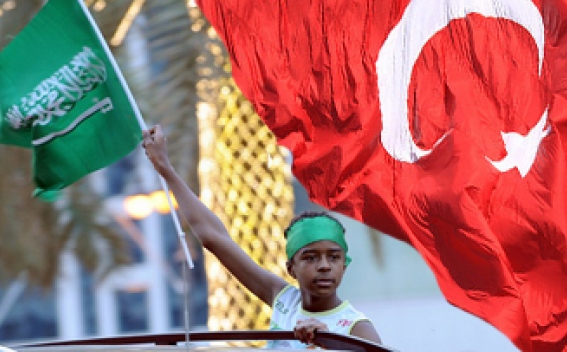
Libyan national army under Khalifa Haftar started offensive in the south of Tripoli and approaches the center of the capital. The government announced that Haftar’s operation involves foreign aviation without giving further details.
At this point there is no evidence of foreign engagement in the military operations, however external forces, regional countries in the first place, have genuine interest. Khalifa Haftar has the support of Saudi Arabia, Arab Emirates and Egypt, and the UN backed government that of Turkey and Qatar.
According to Haftar supporters the government in Tripoli is controlled by radical Islamist groups. Following the Arab Springs, Saudi Arabia and the United Arab Emirates have linked stability in the region to the establishment of military rule. The toppling or weakening of the ruling regime in Tunisia, Libya, Egypt, Syria, and Yemen as a result of 2011 developments led to the rise of Islamic extremism, including the formation of such terrorist organizations, as the Islamic State. Now the Arab monarchies, which also finance Islamic extremist groups, are trying to strengthen military positions in the region for stability, as it happened in Egypt as a result of the military coup in 2013. By the way, Egypt has a special interest in Libya, as the Egyptian government has quite strong ideological enemies in the Tripoli government, on behalf of the Muslim Brotherhood.
The order of the regional forces is the same in Sudan. Turkey and Qatar, who protect the ideas of the “Arab Democracy”, are trying to prevent the military power in the African country and Saudi Arabia, UAE and Egypt, vice versa. Saudi Arabia and the United States have provided $ 3 billion financial aid to Sudan facing serious economic hardships after a military coup, but the Sudanese society is resolute in achieving democratic changes and would not agree on the preservation of the Military Council after the coup.
Thus, the leading countries of the Arab world and the coalition of Turkey and Qatar have strives in regional policy not only regarding the issue of cooperation with Iran. These disagreements are gradually gaining momentum with diverse expressions in bilateral relations. Perhaps these disagreements also account for the Turkish government's overwhelming unrest on the assassination of a Saudi journalist in the building of the Saudi Consulate in Istanbul.
It is these disagreements that drive the developments on the recognition of the Armenian Genocide in Arab countries. Particularly, the UAE media have written about their intention to recognize the Genocide. The Saudi media have broadly covered the topic condemning Turkey's denial policy. The Eastern Libya government has announced its intention to recognize the Armenian Genocide. There have been active discussions on this topic in Egypt in recent years.
Speculation on the Armenian Genocide on behalf of Arab countries having no diplomatic relations with Armenia, including Saudi Arabia, testifies that the disagreements between the two Sunni coalitions are getting increasingly tense, deteriorating the stability in the Middle East.
-
 17:08
17:08The regular session of the Anti-corruption Policy Council takes place in Jermuk
-
 15:05
15:05The Prime Minister sends congratulatory messages to the supreme leader of Iran and the President of Iran
-
 11:11
11:11Armenia sends earthquake aid to Turkey
-
 10:43
10:43Commemoration of the Pontiff St. Sahak Partev
-
 09:16
09:16Some roads are closed and difficult to pass in Armenia
-
 19:55
19:55Phone conversation of the Foreign Minister of Armenia with the U.S. Assistant Secretary of State for European and Eurasian Affairs
-
 18:30
18:30Prime Minister Pashinyan and President Khachaturyan meet
-
 18:20
18:20Ararat Mirzoyan with Co-Chairman of the OSCE Minsk Group of France Brice Roquefeuil
-
 17:01
17:01Humans could land on Mars within 10 years, Musk predicts
-
 16:45
16:45France, US urge 'immediate' end to Nagorno Karabakh blockade
-
 16:01
16:01Blockaded Nagorno Karabakh launches fundraiser to support quake-hit Syria
-
 15:59
15:59Earthquake death toll in Turkey rises to 18,342
-
 15:43
15:43Ararat Mirzoyan Held a Telephone Conversation with Sergey Lavrov
-
 15:06
15:06French president rules out fighter jet supplies to Ukraine in near future
-
 14:47
14:475 Day Weather Forecast in Armenia
-
 14:44
14:44President Vahagn Khachaturyan wrote a note in the book of condolences opened in the Embassy of Syria in Armenia
-
 14:20
14:20Azerbaijan’s provocations impede establishment of peace and stability – Armenian FM tells Russian Co-Chair of OSCE MG
-
 12:57
12:57France representation to OSCE: Paris calls on Azerbaijan to restore freedom of movement through Lachin corridor
-
 11:40
11:40Command of Kosovo forces highly appreciated preparation of Armenian peacekeepers
-
 10:16
10:16The United States withdrew from sanctions against Syria for six months the provision of assistance after the earthquake
day
week
month
Humidity: %
Wind: km/h


